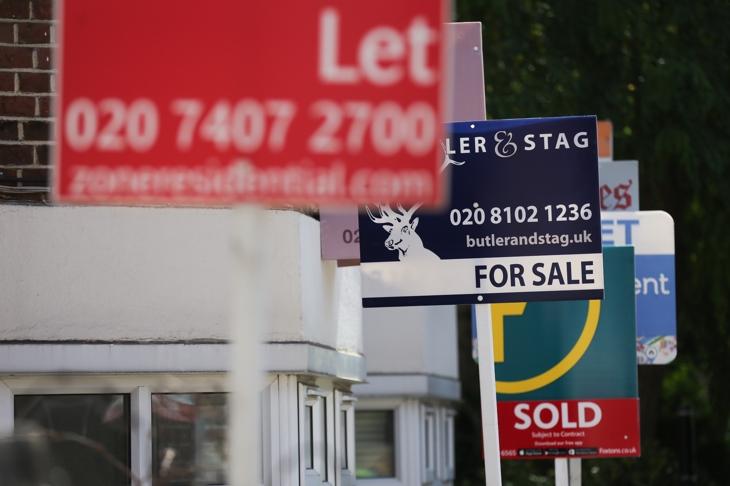It’s often said that Britain has a housing crisis. But actually, it’s much more of a London housing crisis.
Despite notable improvements under the current Government, we are still building 70,000 fewer homes per year than is required by the level of household demand. But when you break those figures down by region, it turns out that 40,000 of those homes are in London.
In a new report for the Centre for Policy Studies, ‘Homes for Everyone’, I analysed up the total cumulative shortfall in housing demand since 2000, region by region. The gap in London is an eye-watering 343,436 homes – more than three times higher than the 95,957 in the South-East, which was the runner-up in terms of housing shortfall.
Sadiq Khan, the capital’s new Mayor, has certainly recognised the scale of the problem. ‘The housing crisis is the single biggest barrier to prosperity, growth and fairness facing Londoners today,’ his website sternly announces. His team has claimed that London needs to build 66,000 homes a year to keep pace with demand (slightly higher than my own estimate of 60,000).
But as ever with the Labour Party, there is rather a large gap between rhetoric and reality. In fact, Sadiq Khan seems to be doing his level best to make London’s housing problems worse, rather than better. In 2015/16, there were 141,740 housing starts across England. In 2016/17, that figure rose to 162,880 – a 14.9 per cent increase.
In London, however, the picture is rather different. In the last year of Boris Johnson’s tenure as Mayor – covering that 2015/16 period – ground was broken on 21,310 homes. In the first year of Sadiq Khan, it was just 17,310 – a 19.6 per cent fall. In the two quarters since, construction has continued to stall: the part of the country that should be building most is falling well behind.
What’s going on? A large part of the problem is what’s happening in City Hall. Take Khan’s commitment to affordable housing. This sounds like the kind of thing no one can object to. But it turns out that when you start telling developers that you’re going to slash their profits on most of the units they’re building, they decide that maybe they don’t want to build the units at all – or else the whole development gets bogged down in protracted legal wrangling between developers, councils and City Hall.
Under Sadiq, developers have to make 35 per cent of units affordable (ie costing no more than 80 per cent of the local average) if they want to get fast-track planning permission – which, given the state of London’s planning bureaucracy, is the only kind of permission that’s worth getting. For homes built on public land (or former public land) that rises to 50 per cent.
It’s not just about affordable housing. There are also the ‘Section 106’ agreements that developers sign – effectively, a promise to provide money or infrastructure or to fulfil specific other conditions in order for planning to go ahead. Under Khan, development after development has been ‘called in’ so that the Mayor can grandstand about social justice and boast about squeezing the evil construction firms for every penny. The result is bumper fees for the lawyers and planning experts on either side – and the diggers sitting idle.
The result of this has not been a surge in affordable housing – or any kind of housing at all. It’s been a string of delays and cancellations of projects. Development is currently stalled over 295 units at New Scotland Yard; 96 units at the old TA barracks in Islington; 283 units on what used to be a Sainsbury’s in Ilford; 237 units on a wharf along Wandsworth Bridge Road; 130 units in Blackheath and 825 units the former Nestle Tower in my neighboroughing constituency of Croydon Central. Two months ago, Barratt Homes got so fed up with City Hall that it abandoned a major project to build 10,000 homes in Meridian Water in Enfield. The development is now in limbo.
Talking to people across London – not just in the Conservative Party – there is a palpable sense that the Mayor’s office has become an obstacle to getting Londoners the homes they need, rather than an enabler. In terms of housing projects for which the Greater London Authority is directly responsible, for example, the Khan mayoralty is on track to deliver nine times fewer affordable homes than in any year of Johnson’s final term as mayor, and six times fewer homes in total.
We as politicians have a duty to protect and promote home ownership, especially for young people – to make the property-owning democracy of which Mrs Thatcher spoke a reality once again. Under Labour, the slogans are all there. It’s the houses that are missing.
Chris Philp is MP for Croydon South. ‘Homes for Everyone’ is published by the Centre for Policy Studies.






Comments